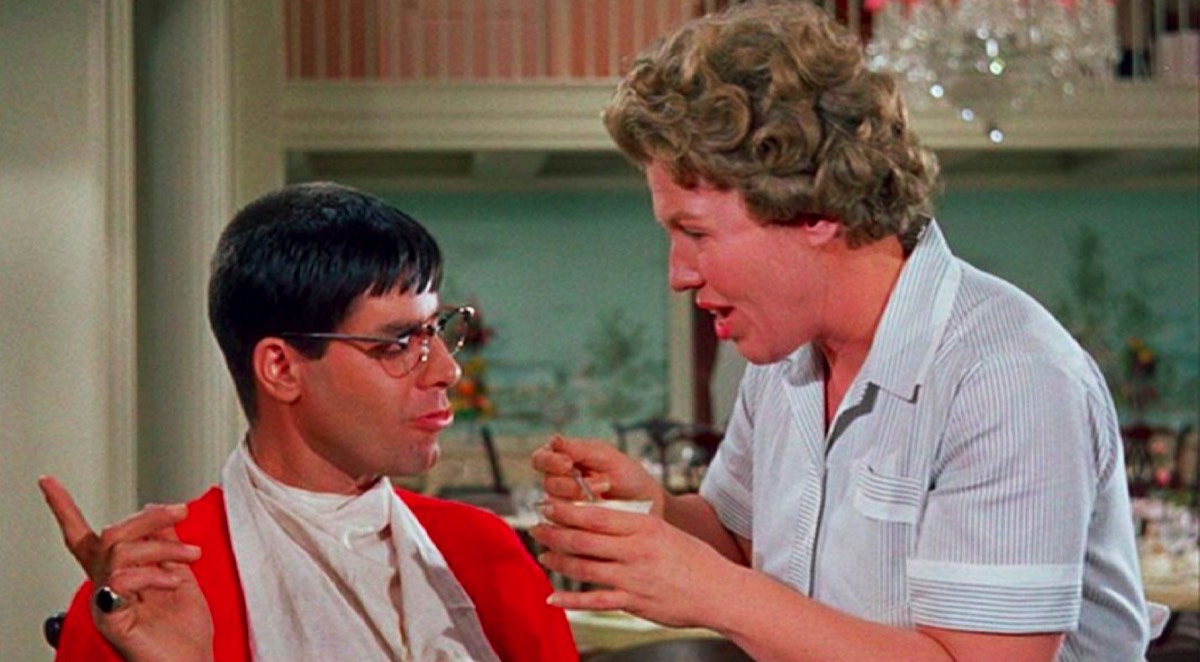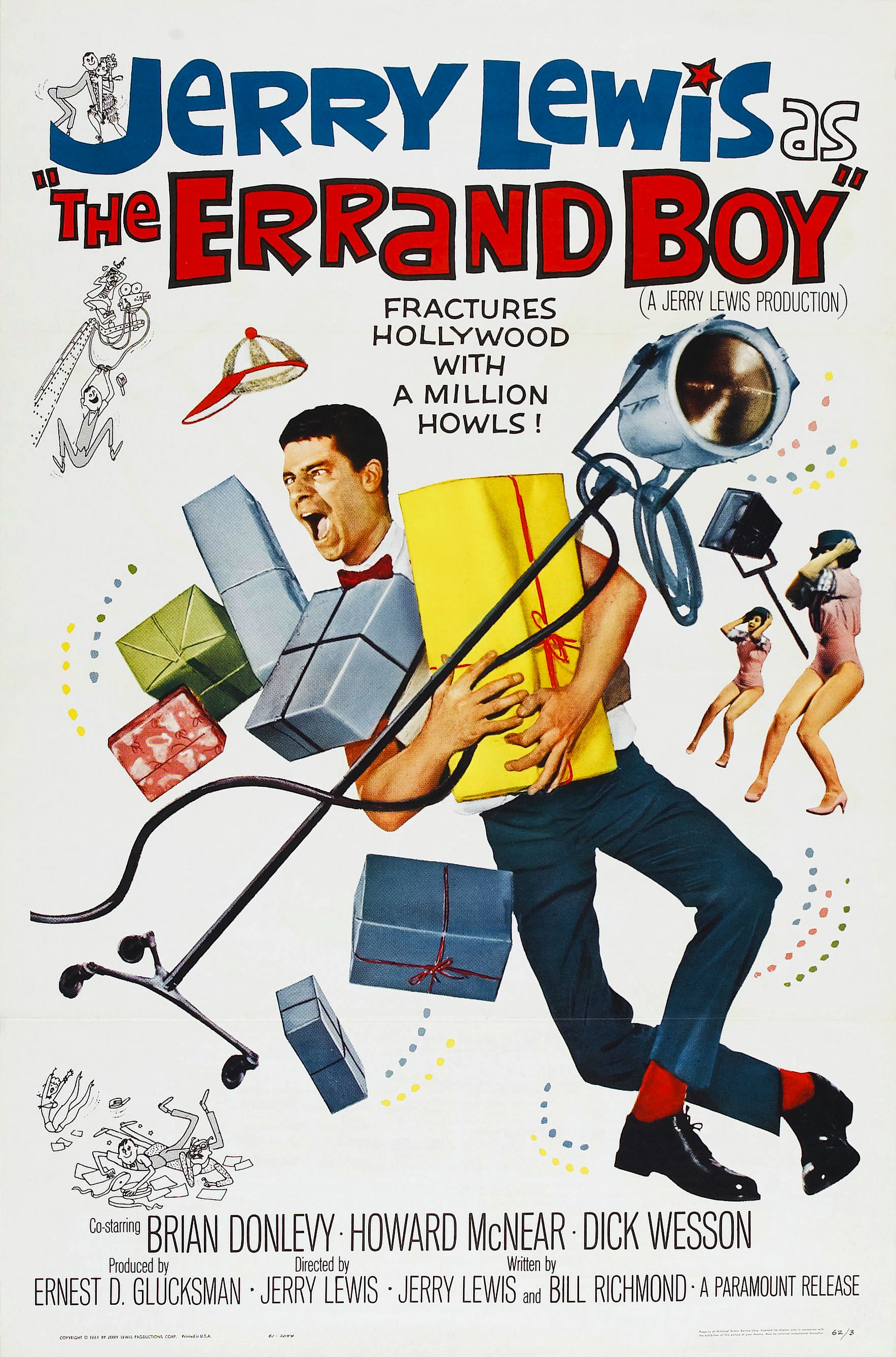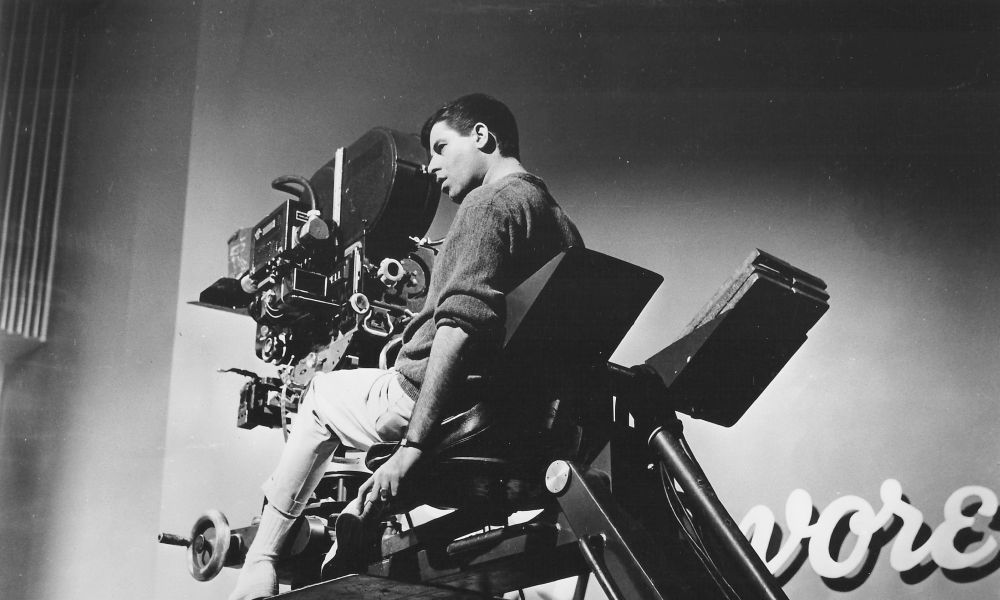"He works carefully as a director to highlight purely cinematic modes of narration with very tight compositions, and employs his knowledge of all aspects of the filmmaking process, a strength that has endeared him to French critics." - Murray Pomerance (501 Movie Directors, 2007)
Jerry Lewis
Director / Actor / Screenwriter / Producer
(1926-2017) Born March 16, Newark, New Jersey, USA
(1926-2017) Born March 16, Newark, New Jersey, USA
Key Production Country: USA
Key Genres: Comedy, Slapstick, Satire, Comedy of Errors, Romantic Comedy, Parody/Spoof
Key Collaborators: W. Wallace Kelley (Cinematographer), Bill Richmond (Screenwriter), Hal Pereira (Production Designer), Kathleen Freeman (Character Actress), Buddy Lester (Character Actor), Walter Scharf (Composer), Ernest D. Glucksman (Producer), Russell Wiles (Editor), Stanley Johnson (Editor), Harold J. Stone (Leading Character Actor), Louis Y. Brown (Composer), John Woodcock (Editor)
Key Genres: Comedy, Slapstick, Satire, Comedy of Errors, Romantic Comedy, Parody/Spoof
Key Collaborators: W. Wallace Kelley (Cinematographer), Bill Richmond (Screenwriter), Hal Pereira (Production Designer), Kathleen Freeman (Character Actress), Buddy Lester (Character Actor), Walter Scharf (Composer), Ernest D. Glucksman (Producer), Russell Wiles (Editor), Stanley Johnson (Editor), Harold J. Stone (Leading Character Actor), Louis Y. Brown (Composer), John Woodcock (Editor)
"If in this period of film history and polemics, I choose to take a stand against Jerry Lewis, I do so with certain preliminary qualifications. First, unlike some of my American colleagues, I think Jerry Lewis is worth discussing seriously as a bone of contention between American and French criticism. The principle involved in this instance is one of total cinema. What I always hoped the auteur theory would contribute to the American film scene was an expanding vision of the cinema as far as the eye of the beholder could see. Second, Jerry lewis cannot be considered an exclusively Cahierist cult figure. Lewis seems to be generally popular in France, and his strongest champions are to be found on the staff of Positif, a publication perpetually at war with Cahiers." - Andrew Sarris (The American Cinema, 1968)
"In France, Jerry Lewis is called ‘‘Le Roi de Crazy’’ and adulated as a genius by filmmakers as respectable as Alain Resnais, Jean-Luc Godard, and Claude Chabrol. In America, Jerry Lewis is still an embarrassing and unexplained paradox, often ridiculed, awaiting a persuasive critical champion… And yet a Lewis cult thrives among American cinephiles; and certainly The Bellboy, The Errand Boy, The Nutty Professor, and Which Way to the Front? appear today to be among the most interesting and ambitious American films of the 1960s… Perhaps only Lewis’s death will allow any definitive American evaluation of his substantial career." - Philip Kemp (International Dictionary of Films and Filmmakers, 2000)

The Ladies Man (1961)
"His first four movies as director are far superior to the rest. Abandoning a plot structure, they are a series of comic sketches linked by a tenuous theme (unusual in American comedy), often using surrealistic visual gags." - Ronald Bergan (A-Z of Movie Directors, 1983)
"To note that the films of Jerry Lewis are a rich, pleasurable and endlessly fascinating meditation on their medium is to say little. With Lewis, it’s necessary to specify which medium. Film, of course; but this is a medium that Lewis’ work has changed and redefined – through such inventions as the video assist, which he introduced in 1960, and through the inventions of sound, image and performance that proliferate in his films. Then there’s the medium of selfhood; and as Lewis’ selfhood is public, intensely so, as well as private, his films meditate deeply on (and through) celebrity. He himself is a medium, a total one, to borrow the adjective he placed so significantly in the title of his book The Total Film-Maker, and no director has done more than Jerry Lewis to exploit the meaningful possibilities of that medium." - Chris Fujiwara (Senses of Cinema, 2016)
"A comic actor, director, writer, and producer, Lewis's film persona of the childlike goofball has sustained him through more than 40 movies… Lewis began to experiment and grow as a filmmaker, learning from director Frank Tashlin, and in the early 1960s he wrote, directed, and produced a handful of excellent comedies, including two masterpieces, The Ladies' Man (1961) and The Nutty Professor (1963)." - The Encyclopedia of Hollywood, 2004
"The first six films directed by Lewis deserve a place in any study of American comedy—even if The Nutty Professor is also the most disturbing version of the Jekyll and Hyde story. It shows the somber side of Lewis’s imagination usually obscured by sentimentality. It seems to reflect on Lewis’s own appearance and the pain of all those disparaging asides in his partnership with Dean Martin… To live in America is to experience the native incredulity at Lewis being taken seriously. Few things are held against the whole of France more fiercely than French love of Lewis." - David Thomson (The New Biographical Dictionary of Film, 2010)
"Solely on his merits as a director, American comedian Jerry Lewis scarcely deserves a place in this book. Almost all of his best acting work was done for other directors, mainly Frank Tashlin. Directing himself, he is almost always self-indulgent, and one of the chief destroyers of his own cinema career. There is, however, one hilarious exception. This is The Nutty Professor, a Jekyll-and-Hyde project which Lewis had nurtured for ten years before getting it off the ground in 1963." - David Quinlan (Quinlan's Film Directors, 1999)
Selected Filmography
{{row.titlelong}}
Jerry Lewis / Favourite Films
The Adventures of Robin Hood (1938) Michael Curtiz & William Keighley, An Affair to Remember (1957) Leo McCarey, All About Eve (1950) Joseph L. Mankiewicz, Breakfast at Tiffany's (1961) Blake Edwards, Casablanca (1942) Michael Curtiz, Citizen Kane (1941) Orson Welles, The Fountainhead (1949) King Vidor, Harry and the Hendersons (1987) William Dear, On the Waterfront (1954) Elia Kazan, Shadow of a Doubt (1943) Alfred Hitchcock.
Source: Not Known
The Adventures of Robin Hood (1938) Michael Curtiz & William Keighley, An Affair to Remember (1957) Leo McCarey, All About Eve (1950) Joseph L. Mankiewicz, Breakfast at Tiffany's (1961) Blake Edwards, Casablanca (1942) Michael Curtiz, Citizen Kane (1941) Orson Welles, The Fountainhead (1949) King Vidor, Harry and the Hendersons (1987) William Dear, On the Waterfront (1954) Elia Kazan, Shadow of a Doubt (1943) Alfred Hitchcock.
Source: Not Known
Jerry Lewis / Fan Club
Bruce La Bruce, Enno Patalas, Violeta Kovacsics, José Camacho Costa, Nigel Andrews, Steven Shaviro, Eric Henderson, Richard Brody, Jonathan Rosenbaum, Adrian Martin, Miriam Bale, Chris Fujiwara.
Bruce La Bruce, Enno Patalas, Violeta Kovacsics, José Camacho Costa, Nigel Andrews, Steven Shaviro, Eric Henderson, Richard Brody, Jonathan Rosenbaum, Adrian Martin, Miriam Bale, Chris Fujiwara.
"Fan Club"
These film critics/filmmakers have, on multiple occasions, selected this director’s work within film ballots/lists that they have submitted.
These film critics/filmmakers have, on multiple occasions, selected this director’s work within film ballots/lists that they have submitted.


